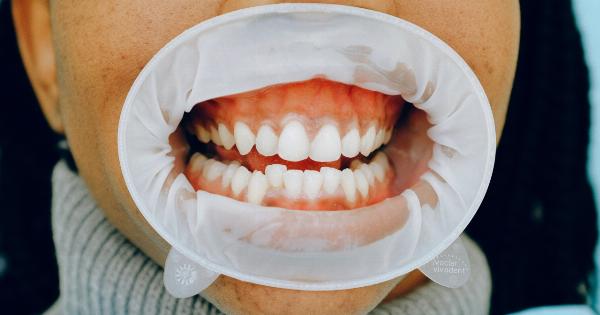Your gums play a vital role in maintaining your oral health. They act as protective barriers, preventing bacteria and other harmful substances from entering your bloodstream.
Additionally, healthy gums provide support to your teeth, helping them stay strong and in place. When your gums aren’t in good condition, it can lead to various dental problems, including bleeding gums. Bleeding gums can be an early sign of gum disease, which, if left untreated, can progress and ultimately result in tooth loss.
To avoid such consequences, it is crucial to take steps to keep your gums healthy and prevent bleeding. In this article, we will discuss some useful tips to help you achieve optimal gum health.
Establish a Good Oral Hygiene Routine
The foundation for healthy gums starts with a good oral hygiene routine. By following these practices consistently, you can prevent plaque buildup, which is the leading cause of gum disease and bleeding gums.
1. Brush Your Teeth Twice a Day: Use a soft-bristled toothbrush and fluoride toothpaste to gently brush your teeth for two minutes each time. Make sure to reach all the surfaces of your teeth, including the gumline.
2. Floss Daily: Flossing helps remove plaque and food particles from between your teeth and along the gumline. Be gentle while flossing to avoid damaging your gums.
3. Use Mouthwash: Rinse your mouth with an antimicrobial mouthwash after brushing and flossing. It helps reduce bacteria that cause gum disease.
Avoid Tobacco Products
Tobacco use, whether smoking or chewing, is detrimental to your oral health. Smoking weakens your immune system, making it harder for your body to fight off infections, including gum disease.
It also reduces blood flow to your gums, making it easier for bacteria to thrive. Chewing tobacco, on the other hand, irritates your gums and increases the risk of gum disease. Quitting tobacco products can significantly improve your gum health and reduce the chances of bleeding gums.
Keep a Healthy Diet
What you eat has a direct impact on your oral health. A nutritious diet helps strengthen your gums, making them more resistant to infections and bleeding. Here are some dietary tips to maintain healthy gums:.
1. Eat Plenty of Fruits and Vegetables: Fruits and vegetables are rich in essential vitamins and minerals that promote gum health. They also increase saliva production, which aids in washing away food particles and maintaining a healthy oral environment.
2. Choose Whole Grains: Whole grains, such as brown rice and whole wheat bread, are high in fiber and low in added sugars. They promote gum health and reduce the risk of gum disease.
3. Avoid Sugary and Acidic Foods: Sugary and acidic foods, like candies, sodas, and citrus fruits, can erode tooth enamel and irritate your gums. Limit your consumption of these foods to protect your gum health.
Manage Stress
Stress can weaken your immune system, making it harder for your body to fight off infections, including gum disease. It can also lead to teeth grinding or clenching, which puts excessive pressure on your gums.
To maintain healthy gums, try the following stress management techniques:.
1. Exercise regularly: Physical activity helps reduce stress and promotes overall well-being, including gum health.
2. Practice Relaxation Techniques: Deep breathing, meditation, and yoga can help alleviate stress and calm your mind.
3. Get Enough Sleep: Adequate sleep is essential for your overall health, including the health of your gums.
Visit Your Dentist Regularly
Regular dental check-ups and professional cleanings are crucial for maintaining healthy gums. Your dentist can detect any early signs of gum disease and provide appropriate treatment before it progresses.
They can also remove plaque and tartar buildup, which are often responsible for bleeding gums. Along with professional cleanings, your dentist can offer personalized advice on how to improve and maintain your gum health.
Avoid Overbrushing
While regular brushing is essential, overbrushing can harm your gums. Brushing too hard or using a toothbrush with hard bristles can irritate and damage your gums, leading to bleeding.
Use a soft-bristled toothbrush and apply gentle pressure while brushing.
Use a Good Mouthwash
In addition to regular brushing and flossing, using an antibacterial mouthwash can help prevent gum disease and bleeding gums.
Look for a mouthwash that contains ingredients like chlorhexidine or cetylpyridinium chloride, as they have been proven effective in reducing plaque and gum inflammation.
Avoid Alcohol-Based Mouthwashes
Alcohol-based mouthwashes can dry out your mouth and irritate your gums. Opt for alcohol-free alternatives that are gentle on your gums while still providing the benefits of fresh breath and reduced bacteria.
Consider Using a Water Flosser
If traditional flossing is difficult for you or causes gum irritation, consider using a water flosser. A water flosser uses a steady stream of water to remove plaque and debris from between your teeth and along the gumline.
It is a gentle and effective alternative to traditional flossing.
Pay Attention to Warning Signs
Keeping an eye out for warning signs can help you catch gum problems early on. If you notice any of the following symptoms, it is essential to seek dental care:.
1. Persistent bad breath.
2. Red, swollen, or tender gums.
3. Gums that bleed easily, especially during brushing or flossing.
4. Receding gums.
The Bottom Line
Maintaining healthy gums is vital for your overall oral health.
By establishing a good oral hygiene routine, avoiding tobacco products, eating a healthy diet, managing stress, and visiting your dentist regularly, you can prevent bleeding gums and reduce the risk of gum disease. Pay attention to warning signs and seek professional help if you notice any abnormalities in your gum health. Remember, prevention and early intervention are key to maintaining healthy gums and a beautiful smile.


























